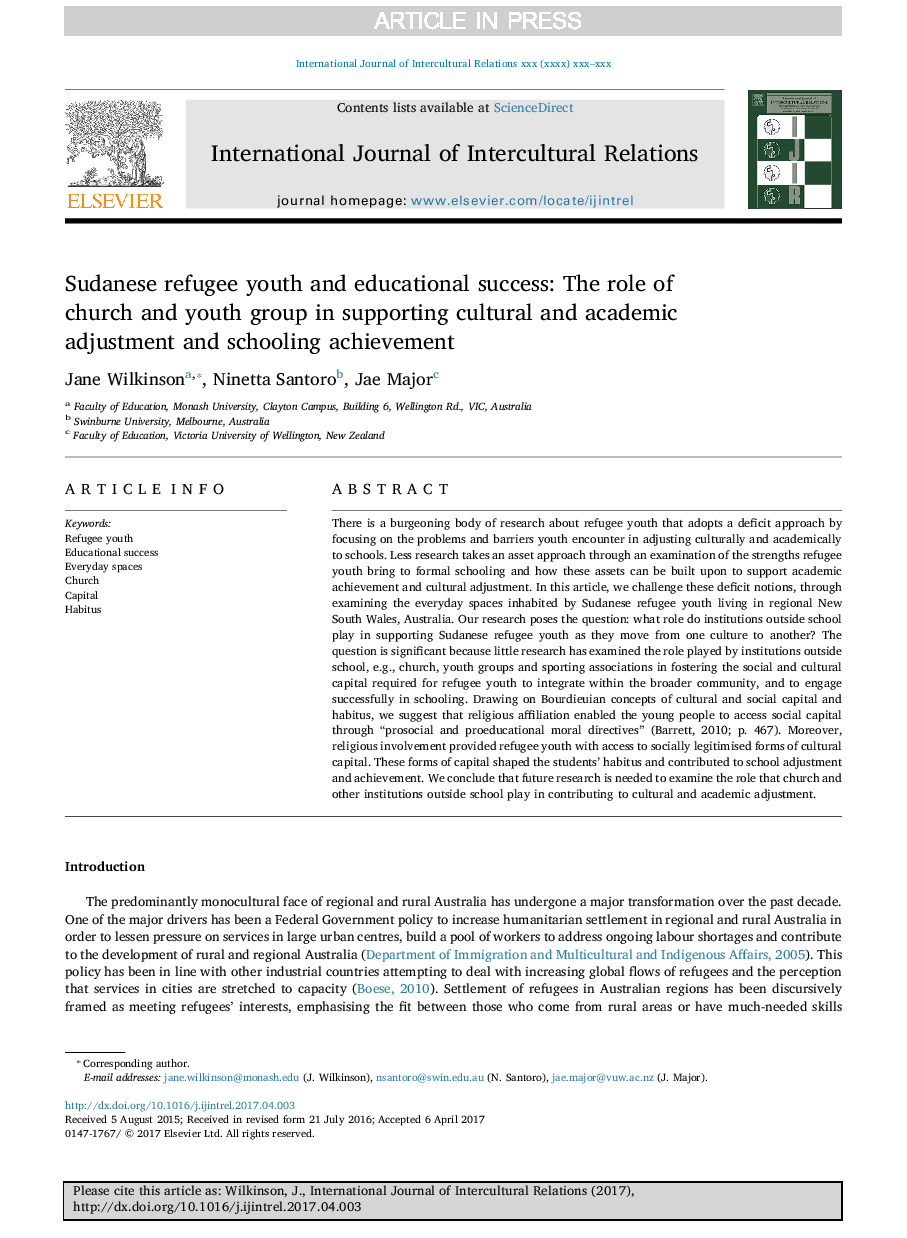ترجمه فارسی عنوان مقاله
جوانان پناهنده سودان و موفقیت تحصیلی: نقش کلیسا و گروه جوانان در حمایت از اصلاحات فرهنگی و آموزشی و موفقیت تحصیلی
عنوان انگلیسی
Sudanese refugee youth and educational success: The role of church and youth group in supporting cultural and academic adjustment and schooling achievement
| کد مقاله | سال انتشار | تعداد صفحات مقاله انگلیسی |
|---|---|---|
| 155601 | 2017 | 10 صفحه PDF |
منبع

Publisher : Elsevier - Science Direct (الزویر - ساینس دایرکت)
Journal : International Journal of Intercultural Relations, Volume 60, September 2017, Pages 210-219
ترجمه کلمات کلیدی
جوانان پناهنده موفقیت آموزشی فضاهای روزمره، کلیسا، سرمایه، پایتخت، حادثه،
کلمات کلیدی انگلیسی
Refugee youth; Educational success; Everyday spaces; Church; Capital; Habitus;

